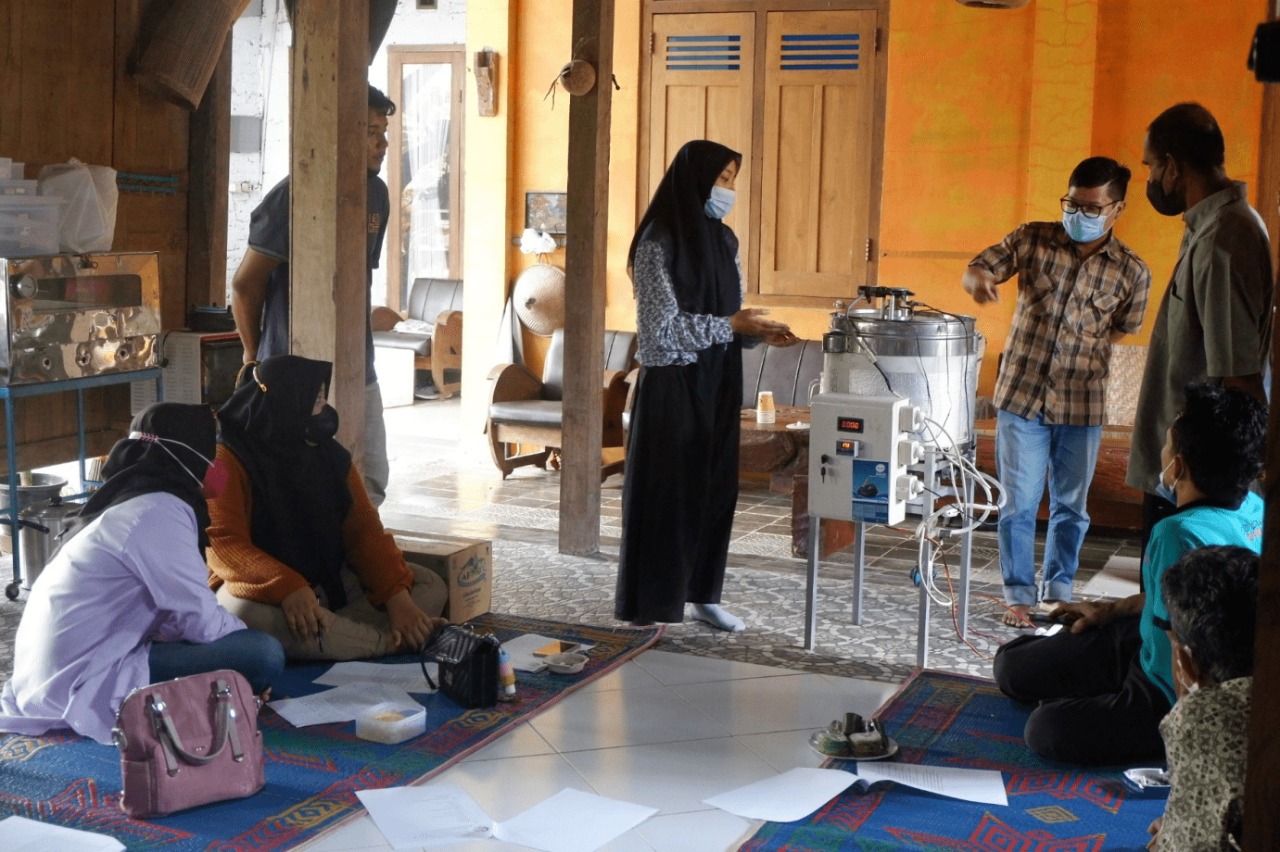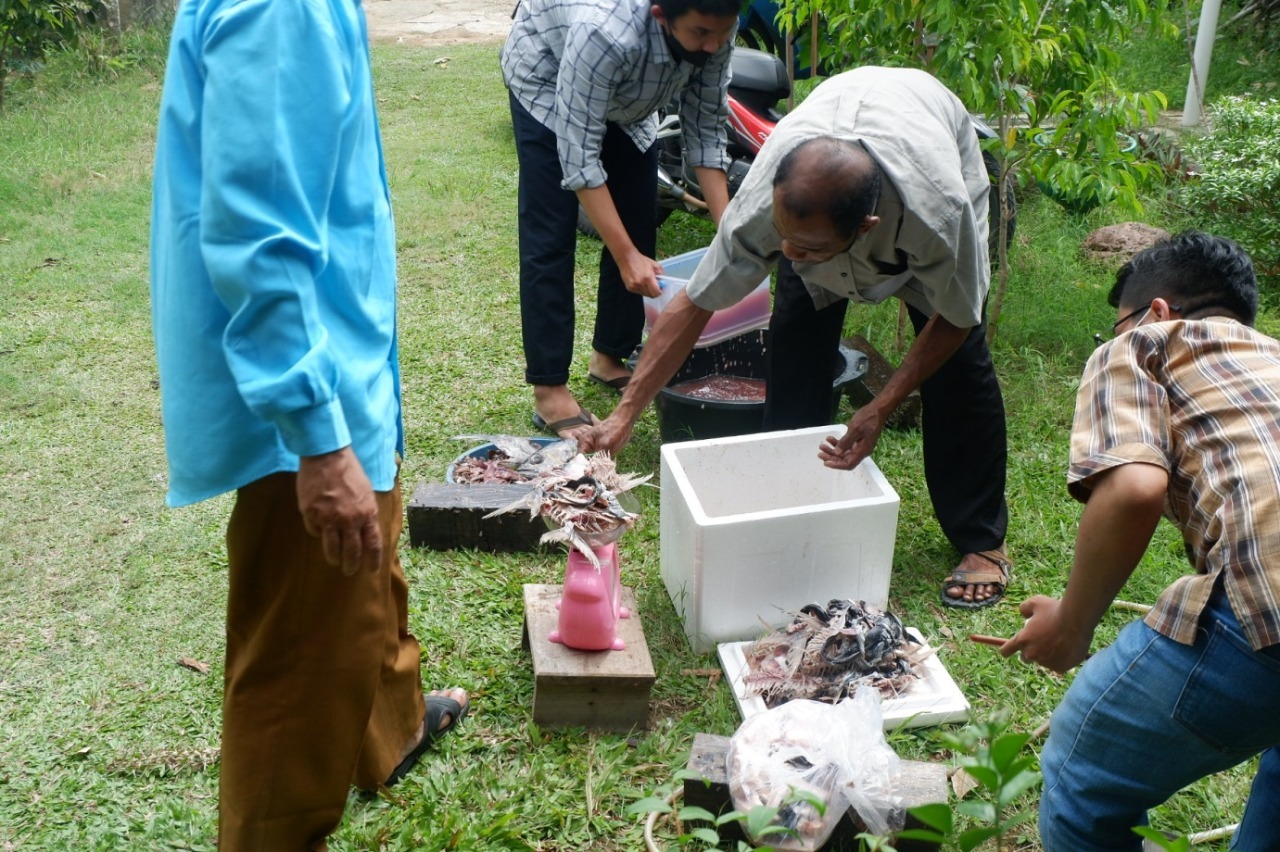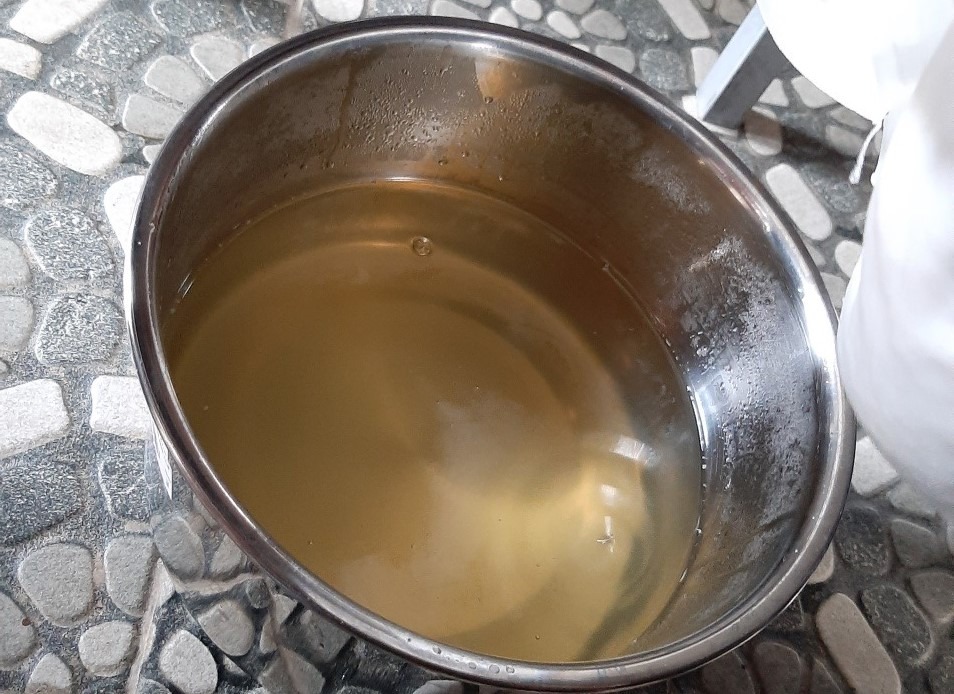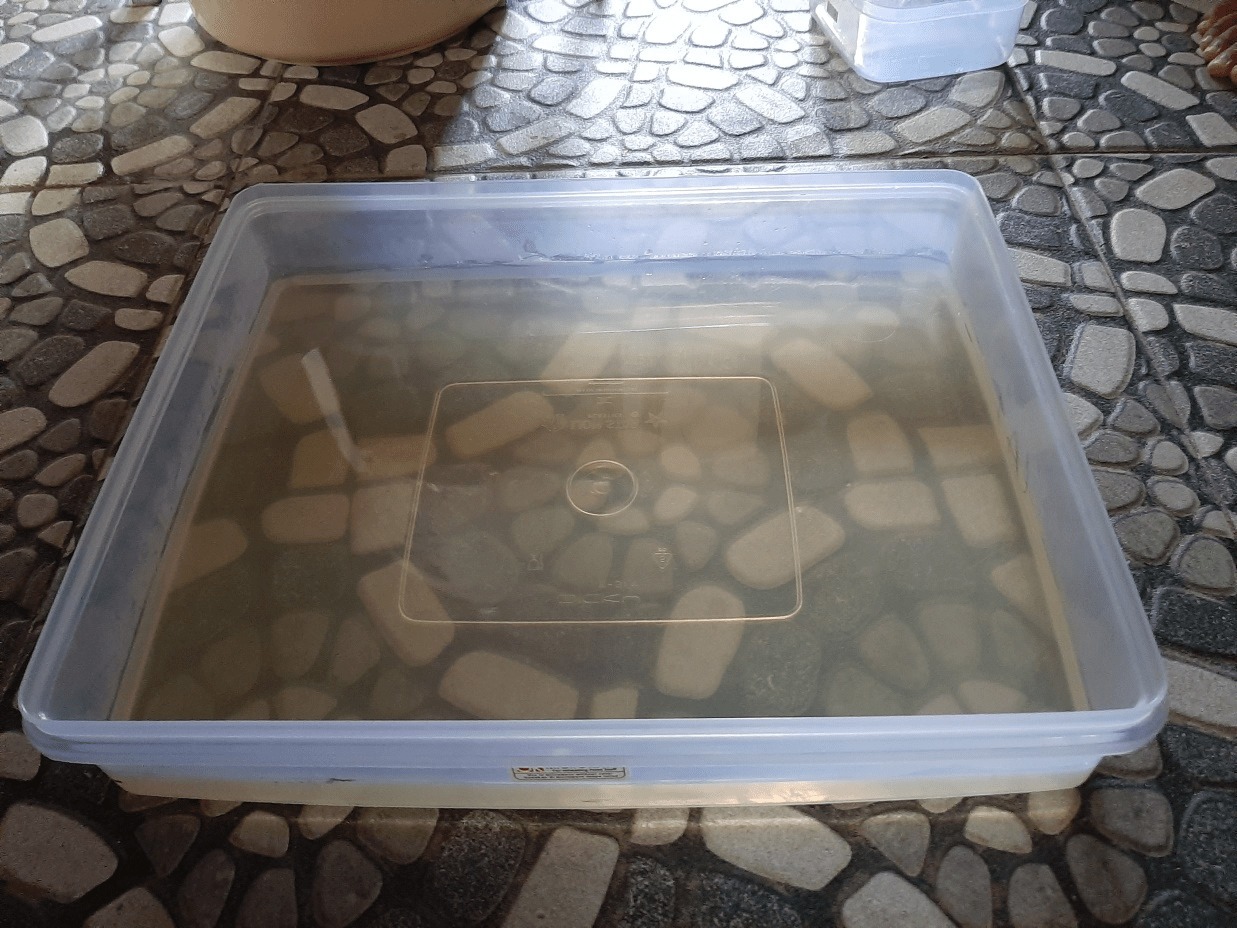Establishing UKM, ITS Turns Fishery Waste into Gelatin

The ITS Abmas KKN student team is showing the workings of a gelatin maker from fish waste to residents
ITS Campus, ITS News – The development of the fishing industry has an impact on the high amount of waste produced. Therefore, the Community Service and Community Service Lecture Team (KKN Abmas) of Institut Teknologi Sepuluh Nopember (ITS) established a Small and Medium Enterprise (UKM) that produces gelatin from fish waste.
The chairman of the ITS Abmas KKN Drs Lukman Atmaja MSi Ph.D. said that the fishing industry waste can be chemically processed into other materials that have economic added value, namely gelatin. “Waste that can be used, among others, can come from tuna, snapper, and other marine fish, which is enough to take the bones and skin,” said Lukman.
In addition, he continued, water, as well as acids and bases, are also needed in the manufacture of gelatin. In the processing, an extractor is needed, an oven, a refrigerator, an acidity meter, as well as supporting tools such as buckets, scales, and filters.
This SME, which is the first to be named Berlian Laut Pact, is located in Pacitan Regency, which has quite a several fishing villages. According to Lukman, Pacitan people generally often turn fish waste into fish meal for animal feed. “Although the process is simple, the drawbacks of this product are that the nutritional content is not that great and the price is not competitive with the market,” he said.

Residents separate the bones and skin of the fish before they are put into the gelatin extractor
Previously, the ITS Abmas KKN team had explored potential sources of raw materials and human resources (HR) related to the production of fish gelatin. “At that time we conducted a literature study, visited the Pacitan Fisheries Service Office, and reviewed the production location,” explained the ITS Chemistry Department lecturer.
Furthermore, the ITS KKN Abmas team conducted socialization of gelatin-making procedures, the introduction of how the tool works to SME stakeholders, and visits to several alternative production locations by the team. In addition, the ITS Abmas KKN team also opened online consultation and assistance to simplify the production process as well as market SME products located in the Kebon, Ploso, Pacitan neighborhoods.

The screening process for gelatin for further processing
The activity which took place from August to December 2021 was attended by six lecturers consisting of Drs Lukman Atmaja MSi Ph.D., Prof Dr. Didik Prasetyoko SSi MSc, Prof Dr. Djoko Hartanto MSi, Drs Drs Eko Santoso MSi, and Prof Setiyo Gunawan ST Ph.D. “In addition, 14 students from the Department of Biology and Chemistry ITS also joined in completing this activity,” added Lukman.
During the activity, Lukman admitted that he experienced a few problems because the production of gelatin requires the local community to be skilled in chemical processes. For this reason, the ITS Abmas KKN team will continue to provide guidance even though the KKN implementation period has ended. “The response we got from the surrounding community after the consultation was quite good,” he said.

The filtered results are in the form of gelatin for further processing
Finally, Lukman hopes that these SMEs can make a profit in six to eight months after their establishment. That way, these SMEs will help provide halal gelatin, especially in the East Java area. “I hope this activity can provide benefits for all parties, especially for the Pacitan community,” he concluded. (ITS Public Relation/far)
Reporter: Erchi Ad’ha Loyensya
Redaktur: Sofyan Abidin
Related News
-
ITS Lecturer Introduces Madurese Culture to the International Stage
ITS Campus, ITS News — Continuing to show local wisdom to the world community, this time a lecturer from the Department
January 25, 2022 15:01 -
ITS Researchers Remind TKDN is Crucial for Economic Independence
ITS Campus, ITS News — The Domestic Component Level (TKDN) is the key to restoring the glory of the Indonesian
January 25, 2022 15:01 -
Strengthening Quality Education, ITS Professor Develops Adaptive Technology for Students
ITS Campus, ITS News — Differences in students’ abilities in understanding lessons are often a challenge for teachers in the classroom.
January 25, 2022 15:01 -
ITS Graduates Create Reverse Logistics Model for PET Plastic Waste Recycling
ITS Campus, ITS News — Doctoral graduate from the Department of Industrial and Systems Engineering, Sepuluh Nopember Institute of Technology (ITS) Dr. Yuniar
January 25, 2022 15:01
